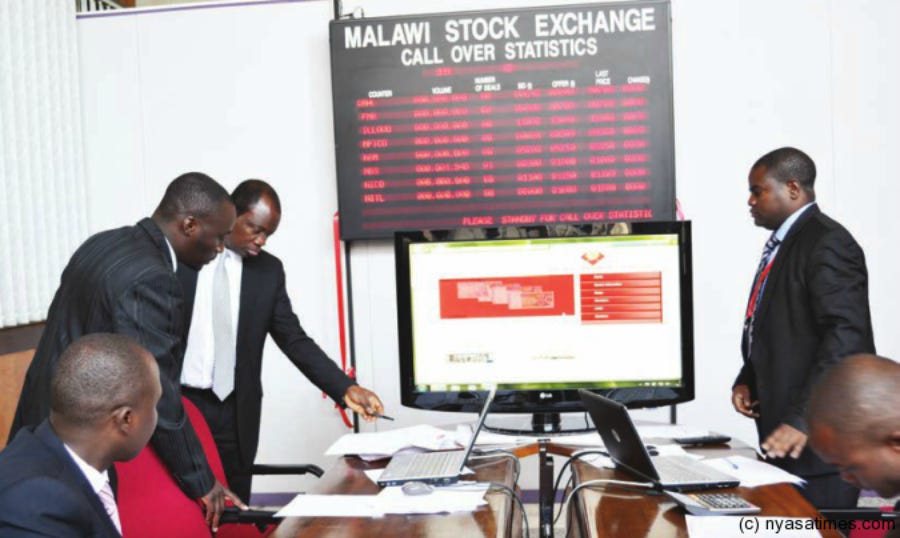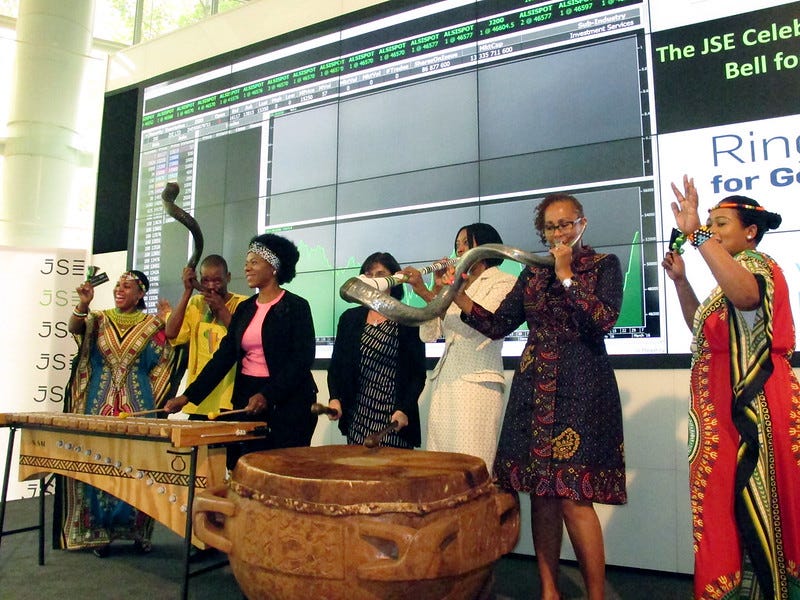The Black Man’s Burden: The Diaspora's Urgent Mandate to Awaken Africa's Sleeping Giants
Part III: How the African Diaspora can unlock African economic growth and success - tapping into African bond and stock markets

In my lifetime, I have only had one conversation with an African about anything relating to Africa’s dozens of stocks and bonds markets. The other occasions when I have had the pleasure to chat with others about it, have been with non-Africans. It’s difficult to become wealthy if you’re not privy to the vehicles of wealth. Stocks and bonds are perhaps the greatest creators of wealth in history, everyone within the African Diaspora would do better to take heed to, and act on this reality, here’s how.
Inspire national action via African bond markets
As of July 2020, nearly 40 African governments were active in global sovereign bond markets. In total, local currency denominated sovereign bonds and foreign currency denominated sovereign bonds throughout the continent were valued at $1 trillion over the same period.
Why can’t the Diaspora become more invested in African bond markets? Competitive returns within a fast-growing, urbanizing region can increase Diaspora wealth while also promoting development for the continent. For instance, the Ethiopian Diaspora contributed over $50 million to Diaspora bonds used to finance the $5 billion construction of the Grand Ethiopian Renaissance Dam. This national project has turned into a great success for Ethiopia, to the point that they now export surplus electricity to other African countries. Indeed, electricity is now becoming so cheap and available that a rising number of Bitcoin miners are relocating to the country.
On top of this, the nature of bond purchases and the market overall could help get the Diaspora more invested and more pro-active in regards to the state of affairs of the homefront. It’s one thing to give money away to family members in instant remittances, the tempo changes when your savings or part of your pension pot are invested in the bonds of your country of origin. Now there’s more skin in the game, as more people begin to take a liking to those annual checks. Passive income necessitates active engagement.
Channel funding for African entrepreneurs through African stock exchanges

Speaking of passive income, this brings us on to one of the most potent and accessible forms of passive income known to humankind: the stock markets. In fact, in 2023 global equities markets' value of $109 trillion actually exceeded that of total global GDP for that same year. It’s worth remembering that the companies listed on stock exchanges all over the world only represent a tiny, tiny modicum of all enterprises on the planet, speaking to the potency and ingenuity of flotation and the public limited company.
While stock exchanges have been in existence for over 200 years, it wasn’t really until the 1980’s that they began to typify the corporate world, the world over. Deregulation, deindustrialization, globalization, and waves of privatization across the globe left banking and finance with a boatload of free real estate, waiting to be parked up in equity markets.
For some perspective, total market cap for all publicly traded stocks in the world was $2.5 trillion (or approximately $10 trillion when adjusted for inflation) in 1980, it’s now over $100 trillion.
With the right legal framework and relaxation of capital controls, stock exchanges serve as an excellent vehicle for financing and guiding enterprise growth and development. The African Diaspora can access African stock exchanges, and tap into listed companies as a new, budding source of wealth while also providing a financial springboard for African leaders of industry.
As we speak, Africa is in the midst of an urbanization boom. As more of the population shifts from the countryside into the cities, wage workers with disposable income multiplies. The consequences of such consequential changes are a burgeoning construction industry and elevated consumption levels. Anyone who has visited anywhere in Africa, within its urban expanse over the last ten years can attest to the sight of houses, apartments, skyscrapers and malls erected everywhere. Every city and ambitious town has plans for hosting new property developments, tourism centers, luxury hotels and schools and universities. And it’s companies who will have to make all of this happen - more will increasingly look to local stock markets to fund such ventures.
As they grow, their company shares will move in a similar direction. That’s why it’s of no surprise to see that the Nigerian Exchange Group (NGX) registered as the 4th best performing stock index in the world. The value of the Malawi Stock Exchange has grown by 143% over the course of two years. Even when you factor in the national rate of inflation, along with the fact that the Malawian Kwacha has depreciated against the USD by approximately 60% over the same period, valuations still comfortably rest in the green. Similar effects are at play with the Egyptian and Zambian stock exchanges too.
Such rapid growth makes sense as you prod further and further into the numbers as well, as a catch-up process is currently at play. African stock exchanges - when taken as a whole - are valued at about $1.6 trillion. $1 trillion of that value, or over 60%, is swallowed up by one stock exchange alone: South Africa’s JSE (Johannesburg Stock Exchange). The second largest stock exchange in Africa is Morocco’s Casablanca Stock Exchange at $60 billion. The gap between first and second place here is massive, especially when you consider that South Africa only has a population of 60 million. Implying humongous room for growth for all of Africa’s stock exchanges.
The Diaspora can be a part of these breakneck developments. As we have already mentioned, they can plug more capital into these exchanges, supporting their growth while enjoying the fruits of their investment. Not only that, The Diaspora can use their international networks, banking and legal expertise to help facilitate the sustainable expansion of the continent’s exchanges.
One last point to add, as the profile of numerous African stock exchanges go up, their role in efficiently allocating resources throughout different African economies will increase as well. In the future, the health of these exchanges will serve as very important indicators for the shape of a country’s economy. With this having the potential to influence the consumption and investment decisions of individuals, firms, institutional investors and governments alike. Diaspora investment at the early stages would leave the community in a strong position to exert pressure on governments or other institutions they feel happen to be going in the wrong direction.



This is an amazing article! I haven’t delved into the rest of your posts yet, but do you invest in any exchanges on the continent? Also, are you aware of the Daba finance platform? I have been wanting to write about it for a few months but have been procrastinating 😅. What you’ve discussed here carries the same ethos as what I do at diaspora dollars. Would love to collaborate!